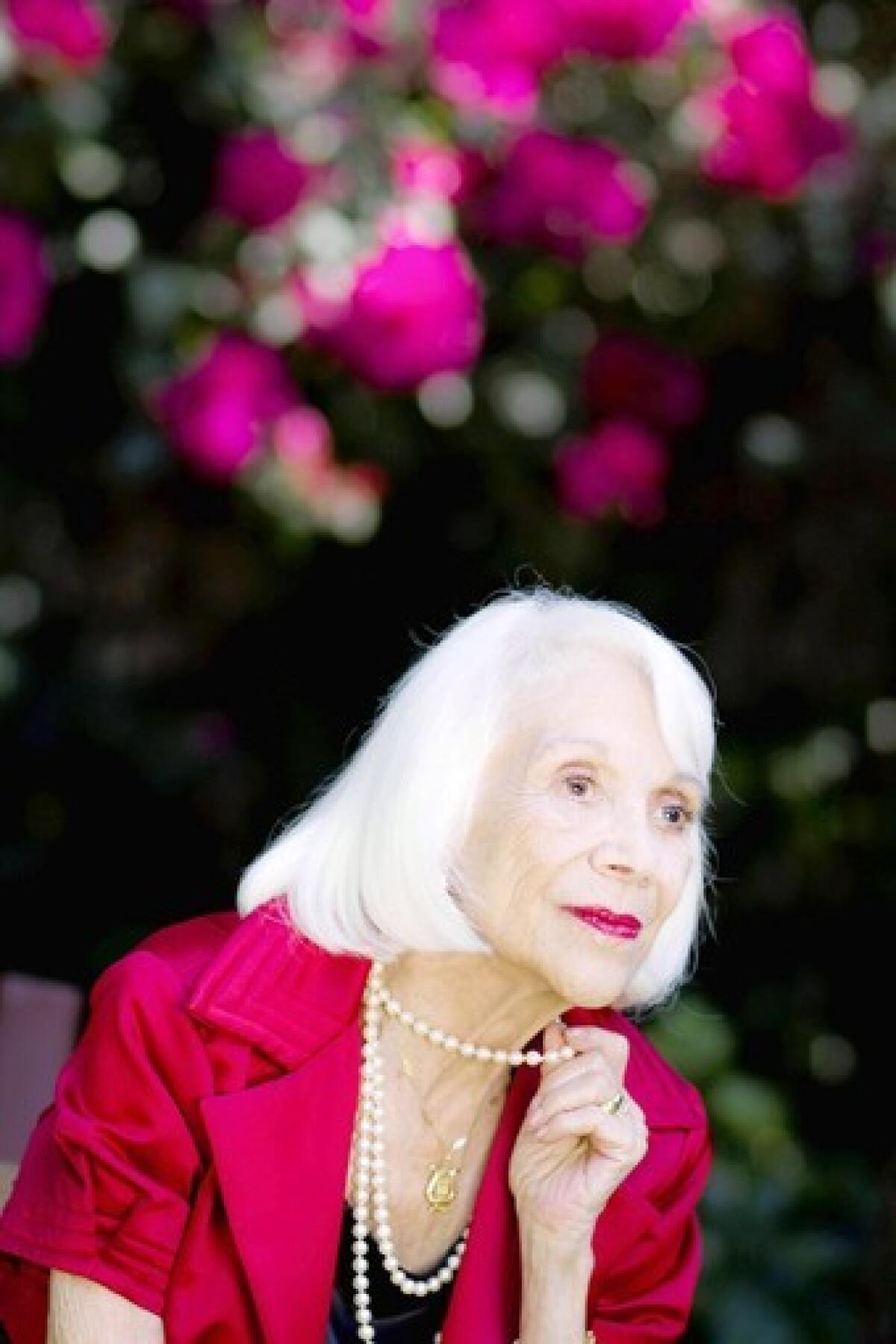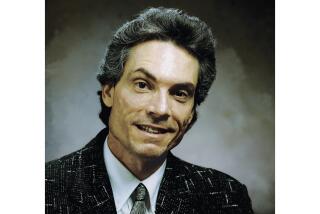Monica Lewis sounds her ‘Siren’

During her heyday in the 1940s and ‘50s, dimple-cheeked Monica Lewis was known as “America’s Singing Sweetheart”: She warbled such chart-topping hits as “Autumn Leaves, “I Wish You Love” and “Put the Blame on Mame” and starred on the radio on such programs as “Beat the Band” and “The Chesterfield Hour: Music That Satisfies.” She was the singing voice for the animated Chiquita Banana commercials and did other ads for Piels Light Beer, Camel cigarettes and General Electric. Lewis was also “Miss Leg-O-Genic” for Burlington Mills hosiery.
Now 89, the diminutive Lewis has written (with Dean Lamanna) her autobiography, “Hollywood Through My Eyes: The Lives & Loves of a Golden Age Siren,” covering her discovery by Benny Goodman, her ill-fated stint at MGM, her romances with Kirk Douglas and Ronald Reagan, and her 40-year marriage to the late movie producer Jennings Lang (“Earthquake,” “Airport 1975,” “Slaughterhouse-Five”), who died in 1996.
Lewis lives in a quaint two-story guest house she designed behind the home of her son, writer-director Rocky Lang, in Northridge. She credits “genetics” for keeping her going all these years. “The main thing is you have to feel good,” Lewis said with a smile.
But she confided that her singing voice has disappeared during the last year.
“We had fires [in Northridge], and I was coughing,” Lewis said. “I abused my vocal chords somehow with the coughing. I practiced twice a week just for fun. But I opened my mouth and a sound came out that was like a honk. I went to three different throat doctors. One said, ‘You have to be quiet for a few months. You just have to heal it.’”
Though she’s not honking anymore, her singing voice isn’t back to normal. “I have no range at all,” she said. “I make Diana Krall sound like she is a soprano.”
Music has always been a part of Lewis’ life. Born in Chicago, her father, Leon, was a symphonic conductor and pianist, and her mother, Jessica, sang with the Chicago Opera Company. Then the Depression hit and Lewis, her two older siblings — concert pianist sister Bobbe and brother Marlo, who would co-create Ed Sullivan’s TV series, originally called “Talk of the Town” — moved to New York City.
“I was always happy as a kid,” Lewis said. “But I had concerns” because of the family’s downward turn during the Depression. “It shaped me in some fashion. I certainly recognized early on that I was supposed to earn money. It gave me tremendous incentive to get out there and work.”
She quit junior college at 17 and got a job as a singer on the radio show “Gloom Dodgers” for $25 a week. “It was 6 every morning. I would say, ‘Hi, how are you doing today?’ — that kind of thing.”
One day, she got a call from her friend Leonard Feather, the noted jazz pianist, composer and producer who would later become the jazz critic for The Times. He told her that Benny Goodman was looking for a female singer for his band.
“He said, ‘They are having an audition at 3 today for Benny Goodman because Peggy Lee eloped with Dave Barbour,’ who was the guitarist. ‘He needs someone to sing tonight. Can you be there? You have to go to the Astor roof.’ I said, ‘Yeah, I guess.’ I took the subway. There were 300 girls there. My knees were shaking. He stopped most of them after four bars. He let me sing the whole song. He said, ‘OK, kid, come back at 7:30 tonight.’ You couldn’t get a better start.”
But her career stalled in 1950 when she was signed to a two-year contract at MGM. Lewis made only a couple of films there, the best known of which is the 1952 musical “Everything I Have Is Yours,” with Marge and Gower Champion. The studio didn’t know what to do with her. At one point, executives sought to turn her into a lookalike of one of the studio’s biggest stars, Lana Turner, so that if Turner misbehaved, Lewis would be waiting in the wings.
“They wanted a threat,” Lewis said. “A threat to Lana Turner! It was being in the right place at the wrong time.”
More to Read
The biggest entertainment stories
Get our big stories about Hollywood, film, television, music, arts, culture and more right in your inbox as soon as they publish.
You may occasionally receive promotional content from the Los Angeles Times.







